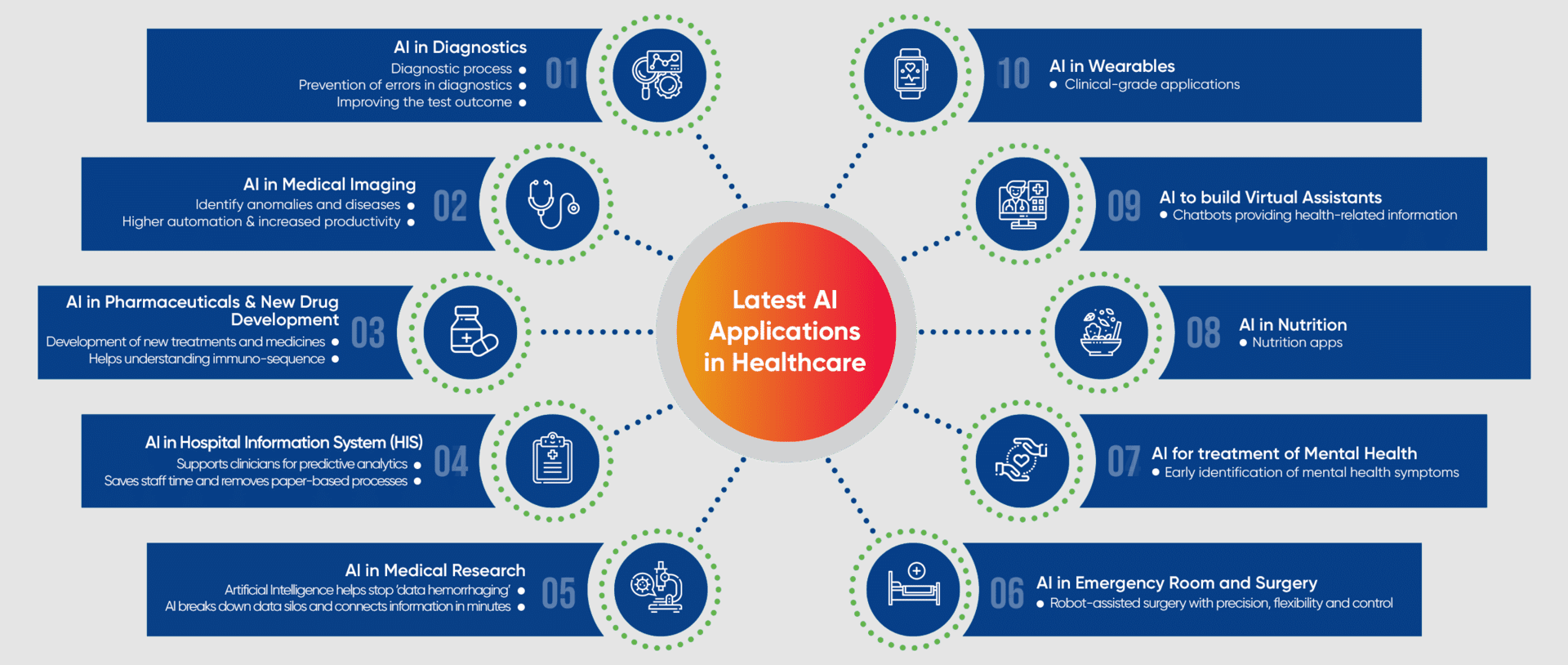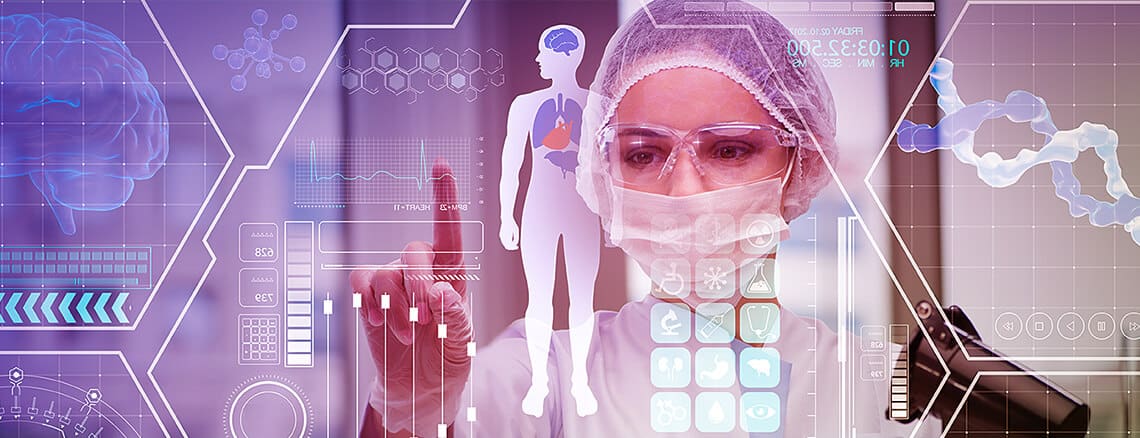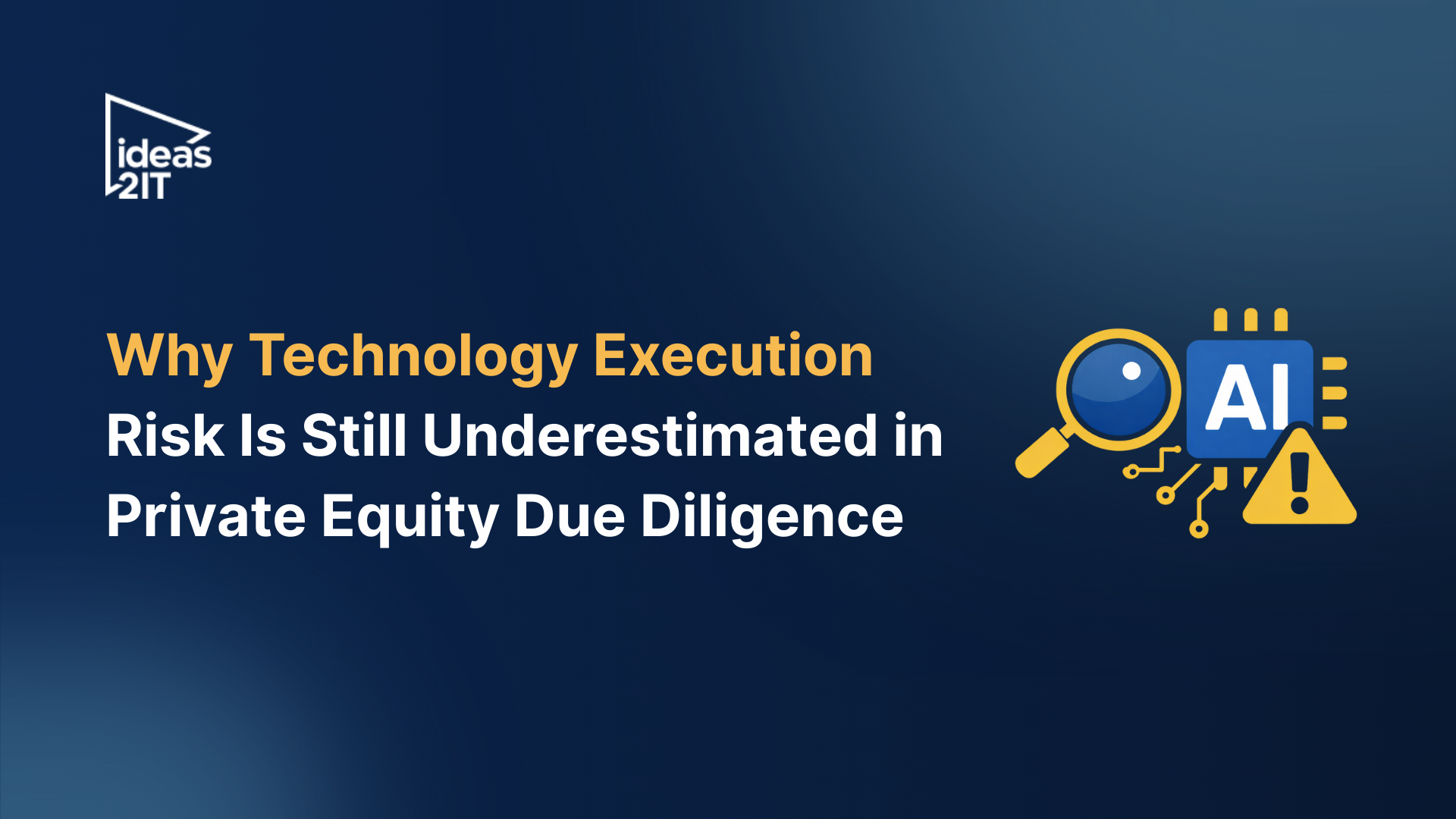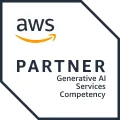AI in Healthcare: A Brief History and 2026 Applications
TL'DR
- AI in healthcare has evolved from philosophical roots and early research to real-world 2026 applications.
- Key breakthroughs include IBM's Deep Blue, IBM Watson, and the rise of NLP and Deep Learning.
- In 2026, AI is widely used in diagnostics, medical imaging, drug discovery, hospital systems, surgery, mental health, nutrition, and wearable tech.
- This blog explores both the historical timeline and the most impactful healthcare use cases of AI today.
A Brief History of AI in Healthcare
No other technology has captured the human imagination and evolved from it like AI. The Ancient Greeks toyed with the idea of inanimate objects coming to life as intelligent beings and spawned several myths. Several centuries later, philosophers attempted to understand the human decision-making process; only so that it could be recreated through non-biological means.
But it was only in 1956, that the field of modern AI was actually founded; at a conference at Dartmouth College, New Hampshire, US. The term ‘Artificial intelligence’ was coined at the event.
Sporadic research was done by the American, British and Japanese scientific communities from the late 1950s to mid-1990s, with several time periods of lost interest and lack of funding. These time periods of inactivity later came to be termed as ‘AI Winters’.
In 1997, IBM's Deep Blue beat Russian Chess Grandmaster Garry Kasparov. And in 2011, the same organization developed Watson, a giant question-answering system (christened after IBM’s founder and first CEO, Thomas J. Watson) won the quiz show ‘Jeopardy!’. In the same year, the first ‘Chatbot’ was also developed.
What Enabled AI Adoption in Healthcare?
But Artificial Intelligence has evolved beyond its initial goal of mimicking human thought to solving real-world problems across industries, especially in healthcare. Research in the 1960s and 1970s produced the basis for MYCIN, a system that leveraged artificial intelligence for use in modern medicine. But MYCIN and other system, such as INTERNIST-1 and CASNET did not achieve routine use by practitioners.
Key Drivers Behind AI’s Growth in Healthcare
In the 1980s and 1990s there were microcomputers and advanced levels of network connectivity. The absence of perfect data warrants the use of AI systems in healthcare. Several medical and technological advancements occurring over the last half-century have enabled the growth of healthcare-related applications that leverage AI. They are:
- An exponential increase in computing power, resulting in rapid data collection and processing
- Growth of genomic sequencing database
- Widespread implementation of Electronic Medical Record (EMR) Systems / Electronic Health Record Systems
- Enhancements in Natural Language Processing (NLP) and computer vision, enable machines to reproduce human-like processes.
- Vast leaps in Deep Learning (DL) techniques and data logs of rare diseases
- Enhanced precision in micro-mechanics, paving the way for robot-assisted surgery
Top AI Applications in Healthcare (2026)
Today, AI plays a multifaceted role across modern healthcare. In this blog, we explore key AI applications shaping diagnostics, treatment, and operations in 2026.

AI in Diagnostics
Misdiagnosis and medical errors still account for a considerable percentage of deaths in the US. The ability of AI to improve the efficacy of the diagnostic process is therefore considered an important healthcare application. The leveraging of AI is helping both medical researchers and doctors. Deep Learning is aiding in the prevention of errors in diagnostics and improving the test outcome.
AI in Medical Imaging

Medical Imaging techniques have been used by the Healthcare industry to diagnose diseases for many years. But Artificial Intelligence is now taking Medical Imaging technology further by enabling higher automation and increased productivity. It is even said that AI-powered Medical Imaging technology can identify anomalies and diseases better than doctors!
AI is currently being used to detect neurological diseases like Amyotrophic Lateral Sclerosis (ALS), indicate the patient’s risk of cardiovascular disease, abnormalities in common medical tests like chest X-ray, Diabetic Retinopathy (DR) and early cancer/malignancy diagnosis.It is also assisting with quantifying blood flow and providing visualization.
AI in Pharmaceuticals & New Drug Development
AI is revolutionizing how pharmaceutical companies develop treatments and medicines. In 2007, a major breakthrough was achieved when researchers commissioned Adam, a robo to research the functions of yeast. Adam referenced billions of data points in public databases and hypothesized about the functions of 19 genes within yeast, predicting 9 new accurate hypotheses.Today, AI is leveraged to search biological systems and understand how a drug could affect a patient’s tissues/cells. Applications like precision medicine and predictive medicine are used to predict a patient’s treatment rather than investigating a larger set of patients.
AI enables healthcare providers to create a digital profile of humans. This can help in understanding immuno-sequence, thereby generating a new class of immune diagnostics in oncology. Additionally, it is being used to accomplish reproducible research in bioinformatics, genomics, and life science.
AI in Hospital Information System (HIS)
Like in all industries, time is money in healthcare too! A recent study of 35,000 physician reviews revealed 96% of patient complaints were primarily about lack of customer service, confusion over paperwork and negative front desk experiences.
Currently, most hospitals and clinics have HIS software to handle the appointment process, treatment follow-up, and other administrative processes, by integrating with EHRs of patients. There is great potential for these systems to be used to offer superior health services.
Furthermore, AI in healthcare provides support to clinicians for predictive analytics in real-time and solves operational challenges across hospital functions. It also saves staff time, reduces steps, and removes paper-based processes through automated data collection, analysis, reporting, and communication.
AI in Medical Research

Healthcare is widely considered one of the next big data frontiers to tame. Highly valuable information can sometimes get lost in the forest of trillions of data points. Additionally, the inability to connect important data points is slowing the development of new drugs, preventive medicine, and proper diagnosis.
Many in healthcare are turning to Artificial Intelligence as a way to stop the ‘data hemorrhaging’. The technology breaks down data silos and connects information in minutes, this was a process that used to take years to process. You could read about how we leveraged AI to predict mortality COVID-19-driven mortality and how we predicted the early onset of Sepsis.
AI in Emergency Room and Surgery
The popularity of robot-assisted surgery is skyrocketing. Hospitals are using robots to help with everything from minimally-invasive procedures to open-heart surgery. According to the Mayo Clinic, robots help doctors perform complex procedures with precision, flexibility, and control. Robot-assisted surgeries have led to fewer surgery-related complications, less pain, and a quicker recovery time.
AI in Mental Health and Behavioral Support
We live in a world where 1-in-4 people suffer from mental disorders. Healthcare has seen some of the greatest advances in AI recently, including the early identification of mental health symptoms. Certain factors, such as a person’s tone, word choice, and the duration of a phrase, are considered when studying an individual. Thus, for the millions of people who feel lonely and need the support of friends and psychiatric therapists, AI can build resilience, offer support, and save lives.
Explore blog: Agentic AI Services for Healthcare Workflows
AI in Nutrition

Currently, an extensive number of nutrition-related apps are available, with different functions and accuracy. With the integration of AI, nutrition apps can give customized recommendations and suggestions based on a person´s preferences and habits.
AI-Powered Virtual Assistants in Healthcare

Virtual Assistants/AI assistants are currently being used as the first line of interaction with patients, thereby saving time and resources. AI-powered Chatbots have also become the technology of choice for providing health-related information nowadays. Rapid leaps in Natural Language Processing (NLP) have enabled the widespread launch and use of Voice-based AI platforms like Alexa and Siri. The intuitive 24x7 interface of chatbots makes them very strong candidates for the job.
AI in Wearables

Wearables such as smart watches, clothes, and shoes are already trending. Researchers and manufacturers are looking to benefit from this trend by making it available for both everyday use and clinical-grade applications. AI engines are being integrated into the products’ health solutions to capture the health insights of an individual.
Future of AI in Healthcare
The next phase of AI in healthcare will go beyond automation and diagnostics toward full-scale clinical decision support, proactive care delivery, and intelligent system orchestration. As models become more context-aware and multimodal, AI will begin to interpret images, sensor data, and patient conversations in real time.
We’ll see:
- Agentic AI managing end-to-end workflows from patient triage to follow-up care without human handoffs.
- Personalized medicine at scale, where AI tailors treatments based on genomics, lifestyle, and EHR history.
- Digital twins of patients for real-time simulation and predictive care planning.
- Federated learning models enabling AI training across institutions without compromising data privacy.
- Autonomous clinical trials, where AI accelerates recruitment, protocol design, and monitoring.
For healthcare organizations, the future is about empowering clinicians with intelligent systems that adapt, learn, and act in real-world complexity.
If you're exploring ways to integrate AI into diagnostics, research platforms, hospital systems, or wearables, our team at Ideas2IT can support you with data science and product engineering expertise. Talk to Us



.avif)



.png)
.png)

.png)
.png)
.png)












